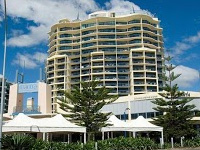Landmark UK ruling ends misleading OTA practices
The UK’s Competition and Markets Authority has moved against six booking agencies to end hidden charges, pressure selling, misleading discount claims, and a lack of transparency on how commissions affect the display of rooms online.
Expedia, Booking.com, Agoda, Hotels.com, ebookers, and trivago have all agreed to comply with the CMA’s transparency requirements over ‘sharp practices’, though not all six companies were found to have engaged in them.
The move follows fourteen months of investigation, with all six signing undertakings to stop “pressure selling, false discount claims and hidden charges”.
The companies have agreed not to give tourist customers a false impression of a room’s value or popularity, and to provide the “full cost of a room upfront”. All compulsory charges such as taxes, booking and resort fees must be shown in the headline price.
“The CMA has taken enforcement action to bring to an end misleading sales tactics, hidden charges, and other practices in the online hotel booking market. These have been wholly unacceptable,” CMA chairman Andrew Tyrie said in a statement.
“Six websites have already given firm undertakings not to engage in these practices. They are some of the largest hotel booking sites. The CMA will now do whatever it can to ensure that the rest of the sector meets the same standards.”
The CMA will monitor compliance and write to other UK hotel booking sites, including OTAs, metasearch engines and hotel chains, setting out responsibilities under consumer protection law. All changes must be made by September 1.
Tourism Accommodation Australia CEO Carol Giuseppi has welcomed the CMA action and its broad scope across numerous agencies.
“Practices such as ‘bait and switch’, discount claims, hidden charges and other potential false, misleading or deceptive conduct such as ‘was/now’ pricing’, are common worldwide and we believe that the CMA action should be adopted globally,” she said.
“In Australia, we believe these actions constitute a ‘misuse of market power’ under Section 46 of the Competition and Consumer Act.
“The Australian Competition and Consumer Commission (ACCC) is testing the case on misleading advertising by instituting proceedings in the Federal Court against Trivago, but action on the broader issues continues to lag.”
Ms Giuseppi said the action, while a step forward, fails to tackle the key issue of rate parity.
“In addition the CMA to date has not addressed, nor has it flagged its intention to address, other issues which have been central to our advocacy in Australia,” she said.
“In particular unfair contracts and the issue of the legality of rate parity. With regards to the latter we believe that owners and operators of the asset should be allowed to compete freely with OTAs by offering lower rates to all customers across all online and offline channels.”
Gerry Ireland, director of Queensland tourism advocacy group Port Douglas Direct, also advocates action to prevent sharp practices occurring in Australia.
He said: “We hope the ACCC will follow the example of the UK’s CMA and implement a strict code of practice.
“We also need to ensure that global OTAs pay their full share of state and federal taxes before remitting their booking commissions revenue back to head offices in the USA.”
Mr Ireland, a vocal campaigner against OTA dominance of the online bookings space, says local tourism authorities should be more proactive in advocating for operators’ rights.
“Leadership in the tourism sector, and in particular from the CEO of Tourism Tropical North Queensland and the executive officer of Tourism Port Douglas Daintree, should be demonstrating support for more compliance to ensure a more competitive playing field for tourism customers, and resort and property owners and managers.
“It’s simply not good enough to have no OTA strategy in the face of eroding tourism business sustainability in Tropical North Queensland, Douglas Shire and beyond.”

AccomNews is not affiliated with any government agency, body or political party. We are an independently owned, family-operated magazine.







